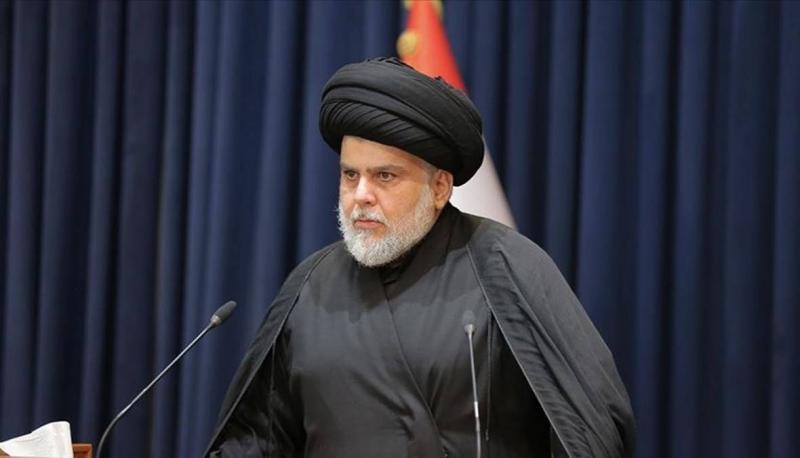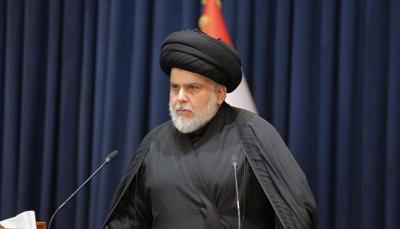Multiple sources have reported that Iraqi Shiite cleric Muqtada al-Sadr is paving the way for his return to the political scene after two years of failed attempts to form a government without his Shiite rivals. Observers say that his anticipated return, likely in the 2025 parliamentary elections, may threaten the growing influence of competitors, including Shiite parties and Iraqi armed factions close to Iran, and undermine the relative stability that Iraq has recently experienced.
However, many within the Shiite majority in the country, especially his supporters—most of whom are his religious and impoverished followers who see him as a champion for the weak—are likely to welcome al-Sadr's return. A former deputy from al-Sadr's bloc stated, “This time, the Sadrist movement is more determined than ever to win a larger number of seats to form a majority government,” even though no official decision has been made regarding candidacy.
The Sadrist movement won the parliamentary elections in 2021, but al-Sadr ordered his deputies to resign, and then announced his complete withdrawal from the political process in the following year after rival Shiite parties thwarted his attempts to form a majority government solely with Kurdish and Sunni parties. Al-Sadr, a prominent figure in Iraq since the U.S.-led invasion in 2003, denounces the influence of both Iran and the United States in Iraq.
Iran views al-Sadr's participation in political life as essential for maintaining a Shiite-dominated political system in Iraq in the long term, although Tehran rejects his aspirations to be recognized as a singular dominant power. The United States, which fought against al-Sadr's loyal armed factions after he declared "jihad" against it in 2004, sees him as a threat to Iraq's fragile stability, but also considers him a tool to counter Iranian influence.
Many Iraqis express that their conditions worsen regardless of who holds power, as the elites drain the country's oil wealth. Al-Sadr has returned to the spotlight since March. First, he held a rare meeting with Grand Ayatollah Ali al-Sistani, the highest Shiite authority in Iraq, who played a pivotal role in ending violent clashes among Shiites in 2022 before al-Sadr's withdrawal from the political scene.
Six sources from the Sadrist movement indicated that the Sadrists interpret the meeting that took place on March 18 with al-Sistani, who generally distances himself from the complex political landscape and does not typically meet politicians, as implicit support. A cleric close to al-Sistani revealed that al-Sadr discussed a potential return to political life and parliament, leaving the important meeting "with a positive outcome." Al-Sistani's office did not respond to a request for comment.
Days after the meeting, al-Sadr called on the resigned members of his bloc to regroup and reconnect with the Sadrist political base. A source close to him shared that al-Sadr then renamed the bloc to be called "the National Shiite Movement," in a veiled critique of rival Shiite factions that he views as unpatriotic and loyal to Iran, as well as an attempt to rally his Shiite grassroots support.
While some analysts fear confusion due to al-Sadr's return to the political scene, others believe he may return more humbly due to the defeat of his supporters during armed clashes with rival Shiite factions and the relative success of the current Baghdad government, including its balanced relations with Iran and the United States.
Hamza Haddad, an Iraqi analyst and visiting fellow at the European Council on Foreign Relations, stated, “Of course, the risk of disruptions always increases when the number of factions involved in the balance of power grows, especially when they are armed. But the Sadrists must return in a less hostile manner.”
He added, "Political factions know it is better to share power rather than lose it completely." A prominent Sadrist politician explained that the movement might seek to ally with some ruling Shiite factions, such as the popular Prime Minister Mohammed Shia' al-Sudani, while excluding others, including his staunch rival Qais al-Khazali, the leader of the Iran-aligned political and military faction Asa'ib Ahl al-Haq.
Al-Sudani's advisors noted that the prime minister keeps his options open. The Sadrist politician stated, "There are factions within the Coordination Framework with which we have long-standing relationships and could ally before or after the elections. What we will not accept is entering into agreements with corrupt factions."
In Sadr City, a sprawling stronghold of the Sadrist movement long plagued by poverty on the eastern side of Baghdad, many await al-Sadr's return, hoping it translates into job opportunities and services.
Talib Mahawi, a 37-year-old father of three awaiting a response to a request for a government job, said, “This city supports al-Sadr, and I don’t think he will forget us after all the sacrifices we have made for him. He should change things when he returns.”




